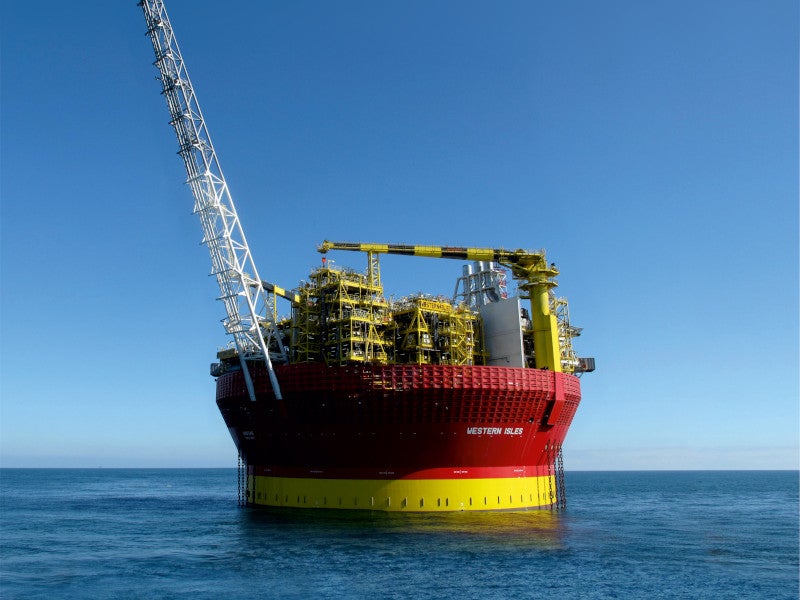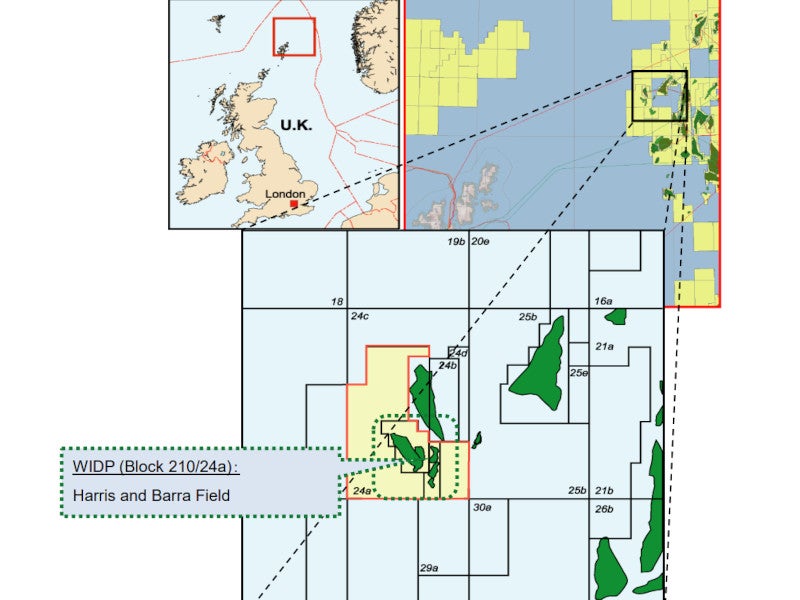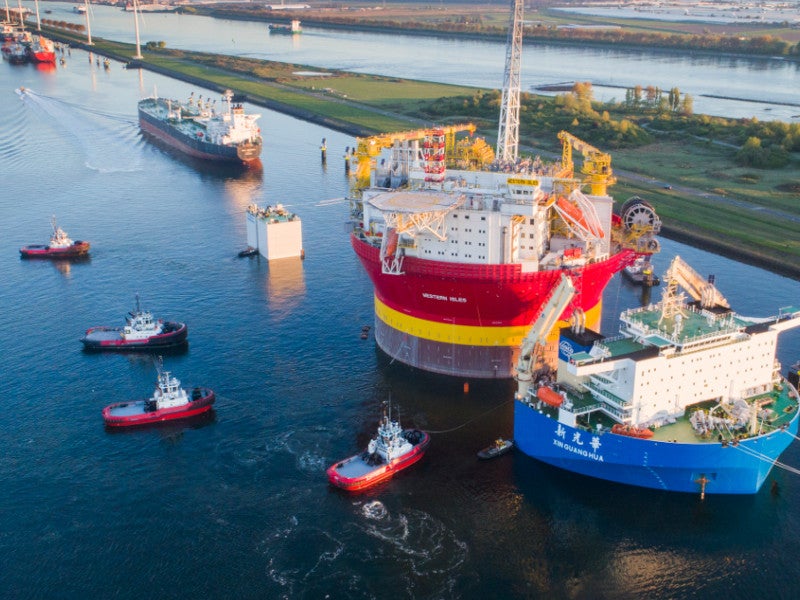The Western Isles Development (WID) project is located in Block 210/24a in the northern North Sea, UK. The project involves the development of two oil fields: Harris (earlier East Rinnes) and Barra (earlier Melville), which are located 160km east of the Shetlands.
The oil fields are situated in a water depth of 165m and a reservoir depth of 6,000ft.
Dana Petroleum, an oil and gas company based in the UK, is the operator of the WID project, with an equity share of 77%. Neo Energy, an exploration and production company based in the UK, owns the remaining 23%.
The UK Department of Energy and Climate Change (DECC) approved the WID project in December 2012. First oil was produced in November 2017. The estimated investment in the Western Isles development project was $2bn.
Japan Oil, Gas and Metals provided a financial guarantee for one of the previous partners in the projects, CIECO Exploration and Production, for the WID project.
In March 2023, Dana Petroleum announced its plans to decommission the Western Isles floating production, storage and offloading and its associated field infrastructure. The programme is contingent upon environmental approval and production cessation is anticipated in early 2024.
Dana Petroleum and NEO Energy signed a sale and purchase agreement in November 2023, under which the latter will acquire the WID project’s Western Isles FPSO.
Discovery of the four North Sea oil accumulations
The WID project is composed of four oil accumulations: Harris, Barra, Lewis (earlier West Rinnes) and Uist (earlier South East Rinnes). Dana Petroleum discovered these accumulations during exploration drilling from 2005 to 2009 in the northern North Sea, UK.
The Rinnes and Barra oil fields were collectively renamed as WID. The hydrocarbons are situated inside the Brent reservoir group of the middle Jurassic age. Dana Petroleum discovered oil at Barra in 2005. The 210/24a discovery well found oil inside the Brent reservoir with an oil column of approximately 100ft.
Oil in the West Rinnes and East Rinnes areas in Block 210/24a was found in 2008. Both the discovery wells were found to have high standard oil, Brent reservoir sands and 78,000 barrels a day of flow rate.
Two more oil discoveries were made at South East Rinnes and South West Rinnes to the south-west of Hudson oil field in 2009.
The oil reserves at the two offshore fields of the WID project are estimated to be 100 million barrels of oil equivalent (Mboe).
Western Isles development project plan
The field development plan for the WID project included the drilling of five production wells, four water injection wells and two exploration wells, and the installation of two eight-slot subsea production manifolds and related flow lines. The first production well was completed in April 2014 and successfully flow-tested.
The wells are connected to the Sevan floating production, storage and offloading vessel (FPSO).
The cylindrical FPSO is 90m-wide, weighs 28,000t and has a production capacity of 44,000 barrels of oil a day, with an additional tank storage capacity of 400,000 barrels.
WID Project contractors
Dana Petroleum awarded a £8m ($12.4m) contract to Aker Solutions in November 2011, for the management, engineering, procurement and construction of subsea facilities for the project. Aker Solutions supplied and installed nine subsea control modules, topside power units and other associated subsea infrastructure as part of the contract.
In July 2012, Dana Petroleum selected Sevan Marine’s FPSO technology to design the new FPSO for the project. Dana Petroleum also signed a service and licence agreement with Sevan Marine in this regard in December 2012.
The Western Isles FPSO was constructed by COSCO, a ship-building company based in China.
Dana Petroleum awarded a $300m contract to Subsea7 to provide engineering, procurement, construction and installation (EPIC) services for the project, in January 2013. The contractual scope included EPIC works for an 11km gas export pipe and two 2.5km pipe bundles.
Subsea7 subcontracted Jumbo Maritime in March 2014 to provide the FPSO mooring piles and ground chain installations.
Balmoral Offshore Engineering, a buoyancy, insulation and protection solutions provider, was awarded a contract to design and manufacture mooring system components for the project.
In February 2015, Dana Petroleum Techflow Marine’s offloading system was selected to operate on the FPSO.
Furgo was contracted by Dana Petroleum to deploy an FCV 600 remotely operated vehicle for drilling services at the WID project in March 2016.
DNV GL, Orca Offshore, Focus Techouse Engineering and KotugSmit (now part of Boluda Towage) are other contractors involved in the project.





